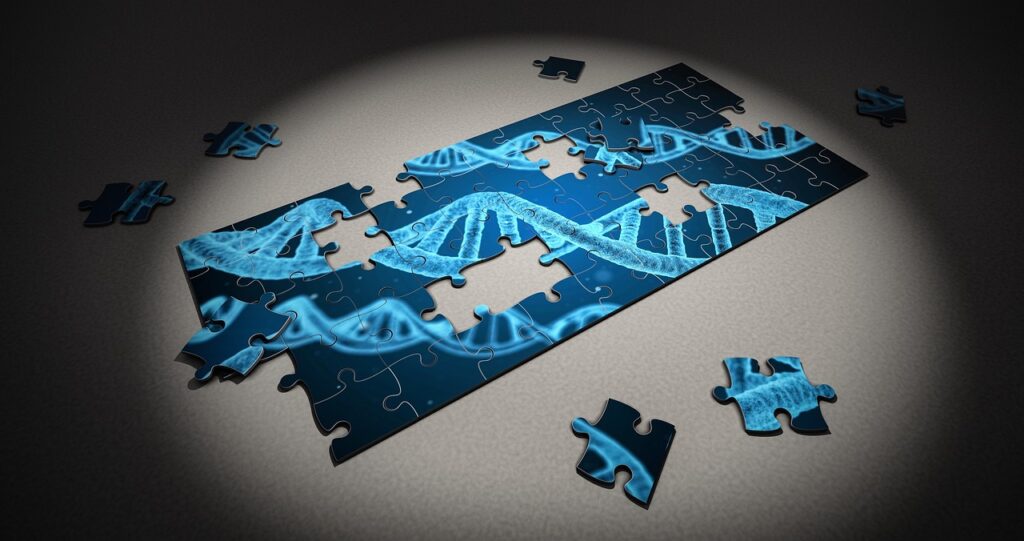Our DNA holds the blueprint of life, encoding our unique genetic information. With advancements in genetic science and technology, we can now read and understand our DNA better than ever before. However, as we delve deeper into the mysteries of our genetic code, concerns about the security of our DNA data have arisen. In this article, we will explore the question: Can your DNA be hacked, and what steps can you take to protect your genetic information?

Understanding DNA
DNA, or deoxyribonucleic acid, is the molecule of life. It contains the instructions that dictate the characteristics and functions of every living organism, from humans and animals to plants and microorganisms. Our DNA is organized into genes, which serve as the blueprints for the proteins that make our bodies function.
In recent years, advancements in genetic science have enabled us to decode our DNA and gain insights into our ancestry, health risks, and more. This information can be obtained through services like DNA testing kits or by sequencing your entire genome.
The Security of DNA Data
As our understanding of DNA has evolved, so has the ability to analyze and interpret genetic information. This has raised concerns about the security of our DNA data, including issues related to:
-
Privacy: Genetic data can reveal personal and sensitive information about an individual, including their health history, familial relationships, and ethnic background.
-
Consent: The use of genetic data, especially for research or commercial purposes, has raised questions about informed consent and the ownership of genetic information.
-
Data Breaches: Genetic data, like any other personal information, can be vulnerable to data breaches and cyberattacks.
Is It Possible to Hack Your DNA?
The question of whether DNA can be hacked is complex and multifaceted. Let’s examine the potential vulnerabilities and risks involved:
-
Data Breaches: Genetic databases can be vulnerable to data breaches, similar to other online platforms. A breach could expose individuals’ genetic information to malicious actors.
-
Genetic Testing Kits: The security of DNA testing kits can vary. While reputable companies have strong security measures in place, there is a potential risk if the testing service provider is not secure.
-
Healthcare Records: Genetic information is sometimes stored in healthcare records. If a healthcare facility’s records are hacked, genetic data could be compromised.
-
Genome Sequencing: Whole-genome sequencing, which decodes an individual’s entire genetic code, poses security risks if the data is not stored and protected correctly.
-
Privacy Concerns: Misuse of genetic information by companies or researchers, without proper consent or anonymization, can be considered a form of “hacking” privacy.
Protecting Your Genetic Information
To protect your genetic information and minimize the risk of unauthorized access or data breaches, consider the following measures:
-
Choose Reputable Service Providers: If you decide to use a DNA testing kit or genetic sequencing service, opt for well-established and reputable providers with strong security measures in place.
-
Review Privacy Policies: Carefully review the privacy policies and terms of service of any company or organization that handles your genetic data. Ensure they are committed to protecting your privacy.
-
Secure Your Online Presence: Protect your accounts and devices with strong, unique passwords and enable two-factor authentication when available.
-
Limit Sharing: Be cautious about sharing your genetic data with third parties or publicly. Avoid sharing sensitive information on social media or unsecured platforms.
-
Understand Research Participation: If you participate in genetic research, ensure you fully understand the research purpose, data usage, and your rights regarding your genetic information.
-
Stay Informed: Keep yourself informed about the latest developments in genetic privacy and data security.
Conclusion
While the idea of hacking DNA may sound like science fiction, the security and privacy of our genetic information are genuine concerns. The potential risks, including data breaches and unauthorized access, highlight the importance of safeguarding our genetic data.
As genetic science continues to advance, it is crucial to strike a balance between harnessing the benefits of genetic knowledge and protecting the privacy and security of our DNA. By following best practices, staying informed, and making informed choices about sharing and storing genetic information, we can enjoy the insights into our genetic code while maintaining control over our privacy and security.